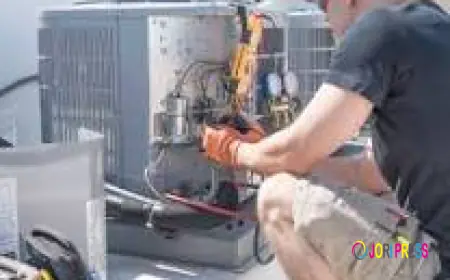What a Mechanic and Labor Lien Service Covers: Parts, Labor, and More
Securing payment for vehicle repairs isn’t always simple. Delays, disputes, or complete non-payment can strain operations and limit cash flow. That’s why many repair facilities turn to legal tools built for their protection. A mechanic and labor lien service FL offers structured support for those looking to enforce their rights while meeting Florida’s legal standards. This process isn’t only about labor — it also protects costs tied to parts, diagnostics, storage, and related service activities. The following breakdown gives clarity on what a lien of this kind truly covers and how it protects your investment.
Beyond Labor: What the Law Actually Protects
In Florida, a mechanic and labor lien isn't limited to the hours spent fixing a car. It applies to the total value of improvements made to a vehicle. This includes:
- Parts installed during the repair
- Work hours performed by technicians
- Diagnostic procedures leading to those repairs
- Supplies consumed during service
- Storage fees (if the vehicle isn’t picked up)
Each of these elements, when properly documented, is subject to lien rights under Florida Statute §713.585.
Valid Liens Start With Clear Documentation
No mechanic lien is valid without proper records. A signed work order or repair authorization with clear terms is the foundation of a strong claim. This includes:
- Itemized list of parts and labor
- Agreed-upon pricing
- Service dates and completion details
- Vehicle identification (VIN, license plate, model)
In the absence of this paperwork, enforcing a lien becomes more difficult. Keep all signed authorizations and repair records secured from day one.
Parts: What’s Covered and Why It Matters
If you’ve installed new components or replaced worn-out ones, these are lienable costs. But only if they're directly tied to repair efforts. This includes:
- Engines
- Brakes
- Alternators
- Electrical modules
- Air conditioning systems
- Tires and wheels
Consumables (such as fluids or small fittings) may also be included if they support the work performed. The total cost, along with markup, can be part of the lien — if it’s properly itemized on the invoice and documented in the initial estimate.
Labor: Every Hour Counts
Labor is often the biggest share of repair costs. Florida lien rights allow mechanics to secure payment for all authorized technician hours. The key is clarity:
- Was labor billed by flat rate or actual time?
- Was the customer informed and signed off before the work began?
- Were any delays or cost increases communicated in writing?
Unclear labor charges open the door to disputes, weakening the claim. A clean labor log builds a stronger case.
Storage Fees: Timing and Limits
If a vehicle sits after repair and no payment is made, storage charges may begin. These must be fair, disclosed, and consistent. The lien can cover:
- Daily storage rates
- Notification of charges sent to the vehicle owner
- Dates tied to the storage period
However, adding excessive charges or not informing the customer in writing can void this portion of the lien. Make sure your service agreement or repair order includes language about potential storage costs.
Diagnostic Work: Often Overlooked but Lienable
Time spent diagnosing a vehicle — especially with electronic or drivability issues — often goes unpaid. Florida law allows shops to include these hours if:
- They’re logged separately
- The customer agreed to pay for the time
- The diagnostics directly led to a repair recommendation
Charging for diagnostic labor without customer sign-off may lead to disputes later. Transparency from the beginning ensures your lien covers this valuable work.
What’s Not Covered Under the Lien
Although Florida lien law is strong, it has limits. The following cannot be included:
- Administrative costs (e.g., office time, billing fees)
- Late fees unless outlined and signed
- Charges added after-the-fact without customer agreement
- Penalties not mentioned in the original agreement
Stick to what’s tied directly to the physical repair or improvement of the vehicle.
Legal Steps: Enforcing the Lien
Having a valid lien isn’t enough unless it’s enforced correctly. Steps include:
- Sending a Notice of Intent within 15 days after repair completion
- Filing a Claim of Lien if payment isn’t made
- Notifying all parties before the sale
- Selling the vehicle under legal guidelines if payment is not received
Every deadline must be met. Missing one step can cancel your claim. Working with professionals experienced in Florida lien filings can reduce mistakes and speed up the process.
Benefits of Working With a Lien Service
Using a licensed team ensures every legal detail is handled correctly, from certified mail notices to structured documentation. This support helps:
- Reduce legal errors
- Protect your lien rights
- Speed up payment collection
- Avoid disputes
A mechanic and labor lien service gives shop owners peace of mind that every step is handled by professionals who understand both state laws and daily shop operations.
Final Words:
Mechanics work hard to restore vehicles, and their time, tools, and parts all carry real value. Florida’s lien law helps ensure they’re not left unpaid — but only if every part of the process is followed correctly. From bolts to labor hours, nearly every part of the repair can be protected. Whether you replaced parts, performed hours of labor, or waited on a vehicle that was never claimed, the mechanics lien vehicle Florida law exists to help you recover your rightful dues. Stop leaving money on the table. Protect your work, time, and parts by filing a proper mechanic and labor lien.
Contact a professional lien service today to take the right steps and secure the payment you’re owed — without delays or legal missteps.
What's Your Reaction?
 Like
0
Like
0
 Dislike
0
Dislike
0
 Love
0
Love
0
 Funny
0
Funny
0
 Angry
0
Angry
0
 Sad
0
Sad
0
 Wow
0
Wow
0

















































